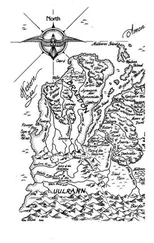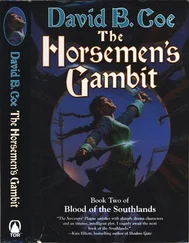H. G. Wells, ‘The Door in the Wall’ (1911):
‘The fact is — it isn’t a case of ghosts or apparitions — but — it’s an odd thing to tell of, Redmond — I am haunted. I am haunted by something — that rather takes the light out of things, that fills me with longings …’
At first, after he had left the room, Laura was too angry even to think. She stood at the sash window, watching him walk back across the quad in the direction of the Porter’s Lodge, and fumed silently. Projecting her own resentment on to his receding figure, she felt that she could discern arrogance in the very cut of his clothes and the angle of his body as he walked. She watched him disappear through the archway and then returned to her desk, where the first thing she saw was the cup of jasmine tea she had poured for him. It hadn’t been touched. She took it out into the little bathroom halfway up the staircase and emptied it down the sink.
She had already been having a difficult day. The journal’s editors had emailed her yet again asking when they could expect her submission, pointing out that she had missed the second deadline by more than a month. And once again she had spent three or four fruitless hours at her desk, going through her own chaotic notes, and her late husband’s even more chaotic notes, trying to find the single overriding theme, the unifying insight that would draw all of these seemingly disparate ideas together. But nothing emerged.
Tim had arrived promptly at two o’clock. He was a second-year student who had come straight to Oxford from a boarding school which boasted notoriously high fees and an undistinguished academic record. He had come to see Laura to make a complaint.
When did this become a thing, she wondered? As a student, she could remember deferring to her own tutor’s every word, listening in awe as little nuggets of wisdom dropped from his lips. Of course, it was healthy that students nowadays had a more spirited attitude; but still, some of them — Tim being a case in point — had gone to another extreme, regarding her as little more than a service provider, to be vigorously challenged when the service in question turned out not to meet their expectations.
‘Whoever wrote that poem,’ he had said to her, ‘is not a serious poet.’
‘His name was Edwin Morgan,’ said Laura, ‘and he was a very serious poet indeed. I just chose to make you study one of his lighter pieces.’
‘But it was complete gibberish,’ said Tim.
‘I thought we’d established that it wasn’t. That was the whole point of the discussion.’
Laura had got her twentieth-century group to read Edwin Morgan’s poem ‘The Loch Ness Monster’s Song’, and thought she had managed to persuade them, by the end of the class, that there were fragments of sense to be plucked out of its apparently random assemblage of vowels and consonants.
‘Well, I mentioned it to my mum. She said she’s never heard of Edwin Morgan and she wanted to know why we hadn’t read any T. S. Eliot yet this year.’
Laura remembered, now, that Tim’s mother was an English graduate herself. These days she wrote historical romances, and presumably made a good living at it, as they were often to be seen at airport bookshops.
‘I’m not teaching your mum,’ she said. ‘Your parents may be paying the fees, but they don’t get to choose the syllabus.’
It was this reference to the tuition fees, she realized afterwards, that had really made Tim bridle. She had suspected, all along, that this was at the heart of his complaint. Increasingly, channelled through the students, she was aware of the vigilant, distantly controlling presence of concerned parents, looking at the money draining out of their bank accounts and wanting to make sure that they saw a good return on their investment. What had always, to Laura and her colleagues, been a solid but intangible thing — education, the elevation of the young mind to a higher level of knowledge and understanding — had now been redefined as a commodity, something to be bought in the expectation that it would one day yield a financial return.
She was still mulling over this annoying encounter in the pub later that afternoon, as she sat sipping a large Sauvignon Blanc and waiting for Danny to arrive. On the table in front of her was a sheet of A4, upon which she had been trying, once and for all, to list the main strands of this much-delayed paper and find a way of weaving them together. So far she had scribbled:
Paranoia
The numinous/supernatural
The Loch Ness Monster, in films/books/poetry
The Monster is nearly always a fake — often at the centre of some conspiracy to make money out of tourists/locals
What is being sold? What is being commodified?
Some sense of awe — wonder — the UNKNOWABLE –
And only now did it occur to Laura that there might be some oblique, tenuous connection between the ruthlessly pragmatic way of thinking Tim’s generation had inherited and the ideas she was trying to synthesize for this essay. Had this been the argument her husband had been trying to frame — did it explain the phrase he had kept returning to, in his analysis of all those forgotten books and films: the process he had called ‘monetizing wonder’?
In the midst of these thoughts, Laura looked up and found that Danny was standing over her.
‘All work and no play …’ he said, glancing down at the writing.
She half covered the words with her hand, modestly, as if he had caught a glimpse of her in nothing but her underwear.
‘Can I get you another?’ he asked, kissing her on the cheek. The kiss lasted slightly too long, she thought, and was slightly too close to her lips.
‘I shouldn’t really. I’m driving.’
‘Very wise. Sauvignon, was it?’
‘Well, just a small one then …’
While he was at the bar, she wondered if it had been a good idea to meet him for this drink, when maternal duty dictated that she should really have gone home forty minutes ago, to make Harry his tea and allow Keisha, the Malaysian nanny, to finish work at the agreed time. She was too pliable, Keisha, too cooperative. She had no family of her own in this country and was always only too willing to earn extra money by staying on for an hour or two, to cover the frequent occasions when Laura decided to work late, or pop into The Jericho on her way home for a glass of white wine. Usually having a quick drink by herself was just an easy way to unwind — and there was nothing wrong with that, surely? — but it was a different matter when Danny joined her. She liked him, but something about these occasions always made her uneasy. Danny was married, but he never mentioned his wife: seemed to behave, more or less, as though she didn’t exist. This had never bothered Laura much when her own husband was alive; she and Danny would meet for a drink and talk about work, about research proposals, conference papers, the students, the horrors of admin and paperwork. Harmless stuff; two colleagues letting off steam about the things that bugged them. She had never really been able to have this sort of conversation with Roger; by then, his thoughts were already too fixed on the past ever to be shifted. But after his death, in any case, there had been a change in her relationship with Danny. His wife’s absence from his field of reference was even more noticeable. He sat closer to her, spoke to her more tremulously, looked at her more intently, than he had used to. But why? She was still in mourning. If he wanted to have an affair, and somehow thought that she was more available than she had been a year ago, he was mistaken. And Laura believed that she had made that pretty clear, one way or another.
Читать дальше












